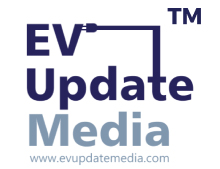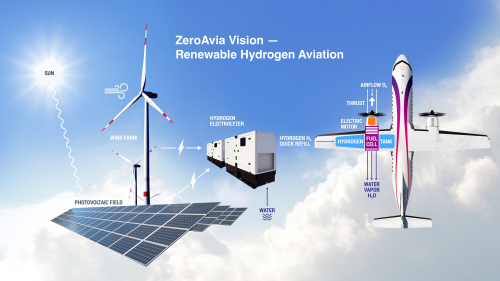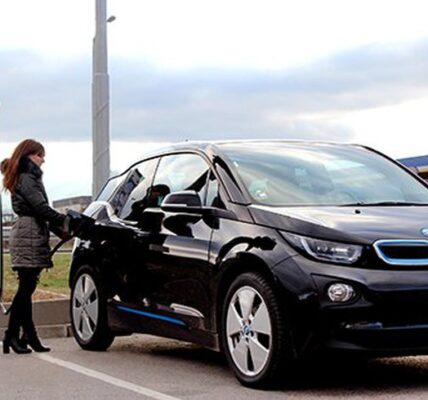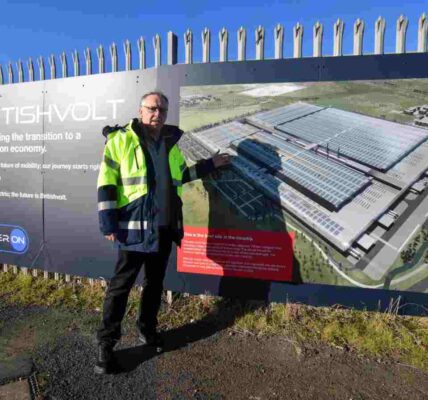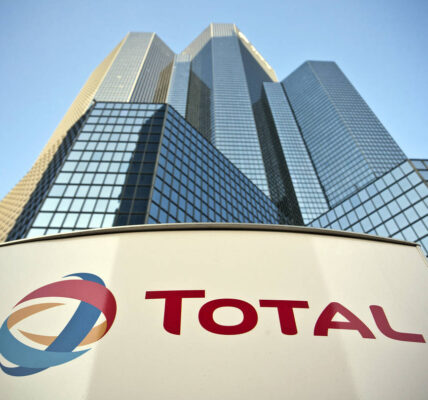ZeroAvia recently completed the first hydrogen-fuel-cell-powered flight of a commercial-grade aircraft. The flight took place at the company’s R&D facility in Cranfield, England, with the Piper M-class six-seat plane completing taxi, takeoff, a full pattern circuit, and landing.
This milestone on the road to commercial zero-emission flight is part of the HyFlyer project, a sequential R&D program supported by the UK Government and follows the UK’s first commercial-scale battery-electric flight, conducted in the same aircraft in June.
ZeroAvia will now turn its attention to the next and final stage of its six-seat development program—a 250-mile zero emission flight out of an airfield in Orkney before the end of the year. The demonstration of this range is roughly equivalent to busy major routes such as Los Angeles to San Francisco or London to Edinburgh.
“While some experimental aircraft have flown using hydrogen fuel cells as a power source, the size of this commercially available aircraft shows that paying passengers could be boarding a truly zero-emission flight very soon. All of the team at ZeroAvia and at our partner companies can be proud of their work getting us to this point, and I want to also thank our investors and the UK Government for their support”, Val Miftakhov, CEO, ZeroAvia
ZeroAvia’s innovation programme in the UK is part-funded through the UK Government’s Aerospace Technology Institute (ATI) Program. Through the HyFlyer project, ZeroAvia is working with key partners the European Marine Energy Centre (EMEC) and Intelligent Energy to decarbonize medium-range small passenger aircraft by demonstrating powertrain technology to replace conventional engines in propeller aircraft.
Intelligent Energy will optimize its high power fuel cell technology for application in aviation while EMEC, producers of green hydrogen from renewable energy, will supply the hydrogen required for flight tests and develop a mobile refueling platform compatible with the plane.
Recently, ZeroAvia was also invited by Prime Minister Boris Johnson to join the UK’s JetZero Council and help lead the UK towards the ambitious goal of achieving the first zero-emission long haul passenger flight.
In addition to all the aircraft work, ZeroAvia and EMEC have developed the Hydrogen Airport Refuelling Ecosystem (HARE) at Cranfield Airport—a microcosm of what the hydrogen airport ecosystem will look like in terms of green hydrogen production, storage, refueling and fuel cell powered-flight. This also marks another first—a fully operational hydrogen production and refueling airport facility for primary commercial aircraft propulsion.
ZeroAvia’s hydrogen-electric powertrain is projected to have lower operating costs than its jet-fueled competition due to lower fuel and maintenance costs. The company plans to control hydrogen fuel production and supply for its powertrains, and other commercial customers, substantially reducing the fuel availability and pricing risks for the entire market.
